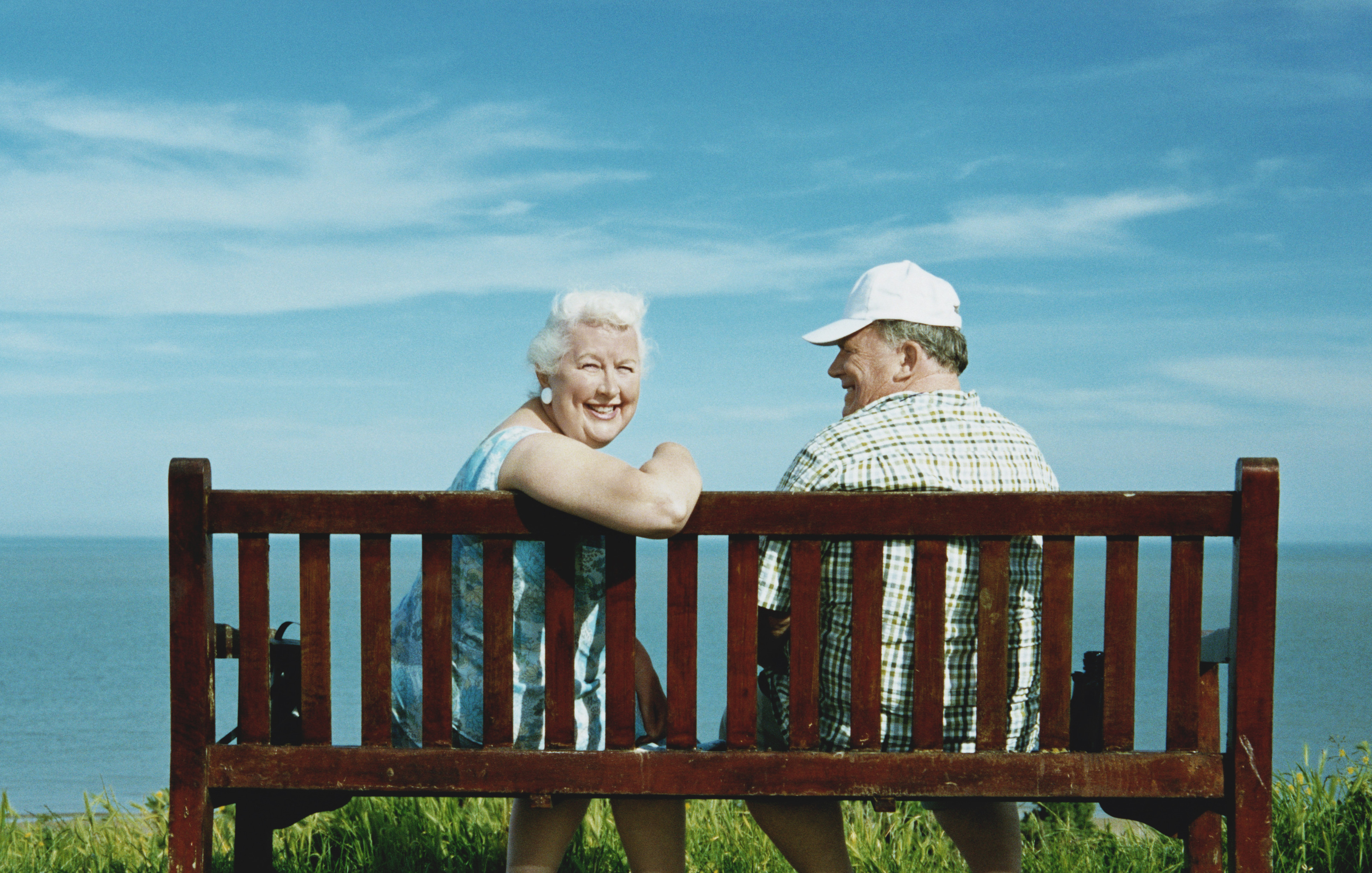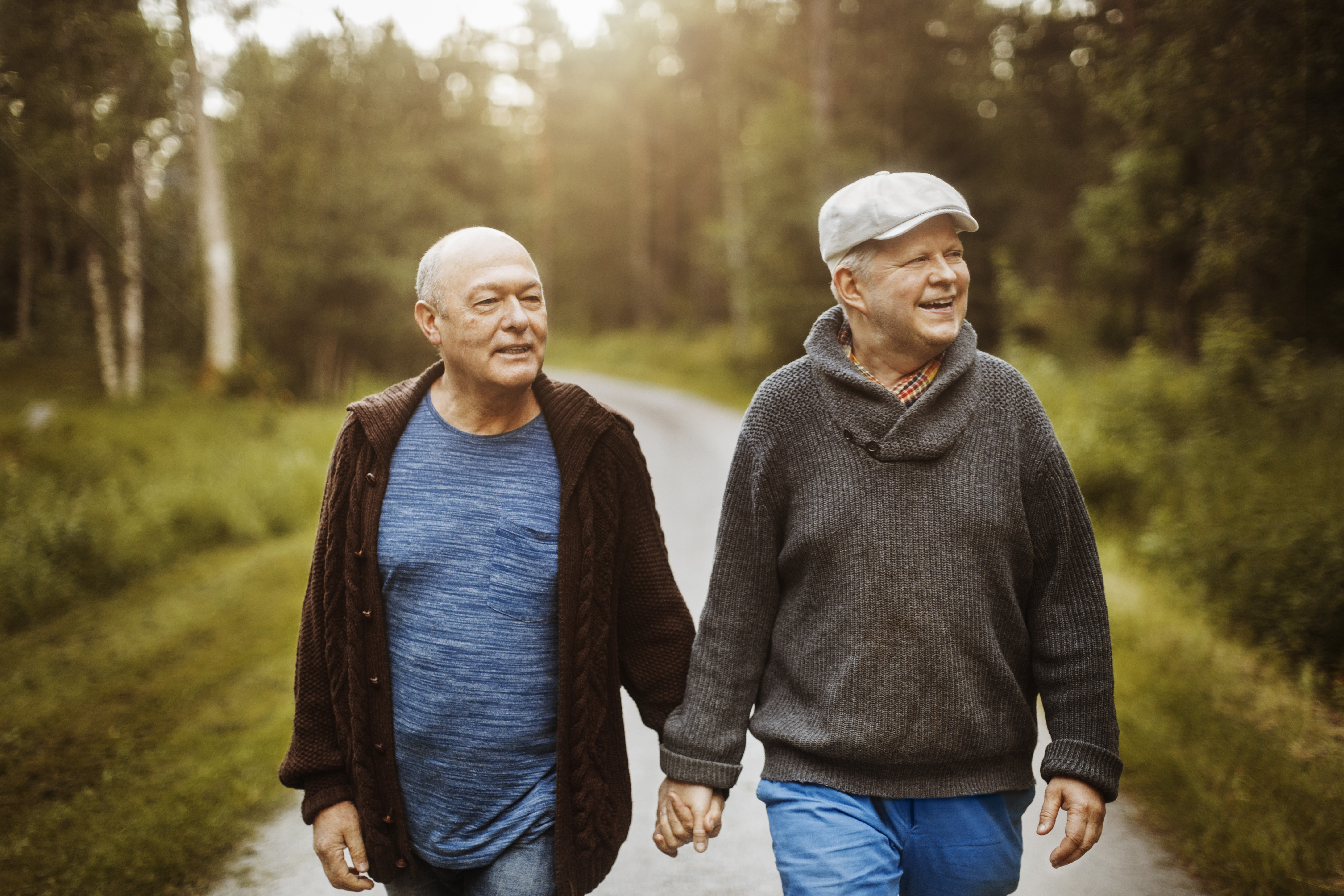
Health & Medicine
Taking the ‘sex’ out of sexually transmissible infections

Rates of sexually transmitted infection (STI) are growing faster among older Australians than among younger people, pointing to the need for tailored information campaigns
Published 11 April 2021
You might feel uncomfortable with the idea that your parents, grandparents, or older neighbours are still sexually active, but the reality is they may very well be.
Research from around the world, including Australia, shows that older adults continue to have sex and value sexual intimacy as an important part of their lives.

Sexual activity can have positive mental and physical health benefits for older adults. But where there is sex there is also the possibility of sexually transmissible infections (STIs). Age doesn’t provide immunity to STIs, and people of any age can acquire an infection if they are exposed to one during sexual contact.
In recent decades rates of STIs among older age groups have been rising in a number of Western countries including the United States and the United Kingdom. Australia is no exception.

Health & Medicine
Taking the ‘sex’ out of sexually transmissible infections
While younger people continue to have much higher rates of STIs than older people, our recently published research shows that between 2000 and 2018 rates of chlamydia, gonorrhoea, and syphilis diagnoses all increased among Australian women aged 55 to 74 and at faster rates than among younger women.
Clearly, STI prevention and testing among older women, and their partners, needs more attention.
Given that younger people are more affected by some of the consequences of STIs, such as infertility, STI prevention and testing should continue to prioritise adolescents and young adults. However, little research has explored the impact of STIs on older people, who have increasing rates of chronic illness, and medication use.

It is hard to say exactly why STIs rates are rising among older Australians. Some of the contributing factors are likely to be: dating and casual sex becoming more normalised among older cohorts as the baby boomers enter their retirement years; low rates of condom use due to limited STI knowledge; and the irrelevancy of pregnancy prevention after menopause.
Older adults aren’t even mentioned in any sexual health policy documents. It is a problem that has been highlighted previously by the Australian Medical Association, and is reflected in the lack of testing or treatment guidelines for this age group.

Health & Medicine
Hooking up in lockdown
Conversations about STIs and the need for testing are therefore unlikely during visits to a General Practitioner (GP), unless the patient’s presenting complaint is related to an STI symptom. And given that many STIs can be asymptomatic, it’s likely STIs are being missed.
Our earlier research as part of the Sexual Health Ageing Perspectives and Education project (SHAPE), showed that there are a number of barriers preventing older patients and GPs from having conversations around sexual health. Other studies have confirmed these issues are widespread.
Some of the barriers deterring GPs from asking about sexual health include a lack of time, the precedence of other health concerns, respect for privacy, a lack of training, and simply assuming that sexual matters aren’t important for older patients.

At the same time, older patients can be reticent to broach sexual matters, citing embarrassment and concerns that their problems won’t be taken seriously. Older adults may also be unaware of the signs and symptoms of STIs and may not realise that many sexual issues, like sexual dysfunction for example, can be treated.
The result is often a stalemate – GPs leave it up to their older patients to initiate sexual health conversations, while older patients wait to be asked. In this way, older adults may be missing out on opportunities for sexual health information and STI testing within the primary care setting.

Health & Medicine
Growing nerves to restore erectile function
Although older adults are likely to have years of sexual experience behind them, they may have had little or no formal sex education when they were younger. Sexual health knowledge is variable among older Australians, but in general it is lower than among younger age groups.
In addition, some older people’s understandings of sexual health may be out of date. For example, a person who is divorced or widowed and starting to explore new sexual relationships, may need to update their knowledge of safer sex after years or decades of monogamy.
Furthermore, people may find themselves in different sexual contexts than when they were younger, like having to navigate the challenges of sexual intimacy after prostate cancer or breast cancer, for example.

Everyone deserves accurate non-stigmatising information to help them maintain their sexual health and enjoy their intimate lives.
While older adults don’t need information about “the birds and the bees”, there are other knowledge gaps, such as STI prevention and testing, that should be addressed through sexual health promotion initiatives tailored for older adults.

Health & Medicine
Superbug gonorrhoea: should we be afraid?
Existing sexual health promotion resources are overwhelmingly aimed at young people, and consequently are irrelevant or unappealing to older adults. There are currently few sexual health information resources targeted to older Australians.
Given that the prevalence of STIs is increasing among older Australians, the need for accessible and engaging sexual health promotion materials targeted at this group can’t be ignored any longer.
In the next phase of our research, we are investigating the sexual health priorities of older adults themselves; and exploring the kinds of resources that would best suit this cohort. We are currently seeking participants aged 60 and over to complete a survey on their preferred ways of accessing sexual health information, and the kinds of content they would find useful.
Our research will inform the development of effective and appealing sexual health resources that meet the needs of older Australians, because everyone, regardless of age, has the right to positive sexual health.
Banner: Getty Images